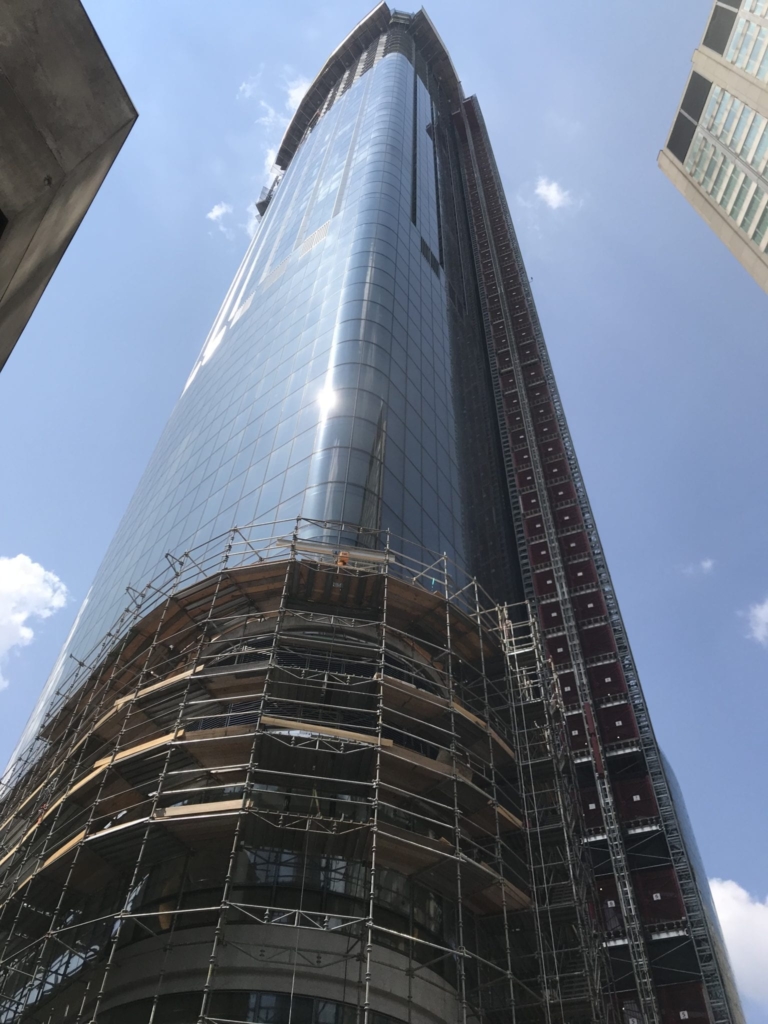
A NEW REPORT from a Washington-based liberal think tank raises concerns about the proliferation of luxury condominiums in Boston and urges policymakers to identify who all the new owners are and impose new taxes on them.
The administration of Boston Mayor Marty Walsh has largely welcomed the jobs and investment associated with the luxury construction. Officials say the strong demand for the new luxury housing is easing pressure on existing units elsewhere in the city and helping to stabilize or drive down rents. The officials also note that luxury housing developers are required to subsidize the creation of affordable housing in the city.
“For the advocates who say luxury this and luxury that, the luxury units are giving us a ton of cash to create affordable housing through the city,” said Sheila Dillon, Walsh’s director of neighborhood services, in a story last year by CommonWealth on Millennium Tower in Downtown Crossing. In a statement released on Monday, city officials noted affordable housing production has averaged 605 units a year over the last three years.
The new report from the Institute for Policy Studies, entitled “Towering Excess: The perils of the luxury real estate boom for Bostonians,” paints a much darker picture of the luxury housing boom, suggesting the expensive high-rises are driving up land and housing costs and contributing to the city’s affordable housing crisis. The report describes the luxury high-rises as “vertical gated communities” that contribute to income inequality in Boston and are “part of a global hidden wealth infrastructure.”
The report says thousands of high-priced luxury units are in the pipeline in Boston but focuses primarily on 12 completed projects with a total of 1,805 units, whose average price is $3 million. The projects include Millennium Tower, Millennium Place, the Ritz Carlton Residences, 45 Province, The Clarendon, 22 Liberty, Trinity Place, Atelier, Belvedere, Carleton House, the Mandarin Oriental, and Le Jardin.
The institute said 35 percent of the units at the 12 buildings are owned by shell corporations or trusts that conceal the identity of the true owner. The report also said 64 percent of the owners do not claim a residential exemption on their property taxes, suggesting their units may not be their full-time residence. The residential exemption is not a foolproof indicator of occupancy, since units held by a trust where the beneficiary of the trust lives in the unit do not qualify for the exemption.
The Institute for Policy Studies recommends a number of policy responses, including a new tax on real estate transactions greater than $2.5 million, with the resulting funds going for affordable housing. The institute also calls for a new tax on units left vacant for longer than six months and a requirement that purchasers of real estate identify the “real human being who is the owner” on their deeds.
Currently, the report said, it is far too easy to conceal the identify of property owners, raising the possibility that some of the owners may be hiding their wealth, dodging taxes, or possibly laundering money. It identified a number of condo purchases in Boston made with cash by shell corporations.
“It is harder to get a library card at the Boston Public Library than to create an anonymous shell corporation and purchase a luxury real estate unit,” the report said.
Dillon said the city of Boston would like the US Treasury to add the municipality “to the list of cities being scrutinized for highly-priced real estate purchases being made by anonymous investors who may be involved in financial crimes.”

One Dalton, the ultra-luxury tower going up in the Back Bay.
The institute identified a number of luxury high-rises in the development pipeline, but focused most of its attention on the 61-story One Dalton Place, which is going up in the Back Bay. The building features 160 condos (average price $6 million) on top of 215 rooms of the Four Seasons Hotel.
“Almost everything that is wrong with the luxury building boom in Boston is embodied at One Dalton Place,” the report said.
The institute said One Dalton has partnered with a broker called IBID to attract overseas investors willing to put up between $500,000 and $1 million in return for visas and a path toward citizenship for them and their family members. The website of IBID indicates One Dalton’s developer, Carpenter & Co., was seeking to raise $160 million from so-called EB-5 investors.
Dianna Walsh, a spokeswoman for Carpenter, issued a statement saying One Dalton was eligible for EB-5 funding because of the large number of jobs generated by the project. She noted the foreigners are investing in the hotel, not buying condos there.
Walsh also said Carpenter has gone to great lengths to verify the identity of its buyers. “We turned down a number of foreign buyers who sought to purchase blocks of units for investment and vetted each and every buyer, including running background checks,” Walsh said. “While it is standard practice these days for people to purchase real estate in trusts and corporations, we insisted that every trust or corporate buyer divulge the identity of the individual beneficiaries or owners of the trust or corporation. Suffice it to say, there are no Russian oligarchs here. The vast majority of the buyers are from the Greater Boston area and this will be their primary residence.”
The post Think tank sees peril in Boston luxury towers appeared first on CommonWealth Magazine.